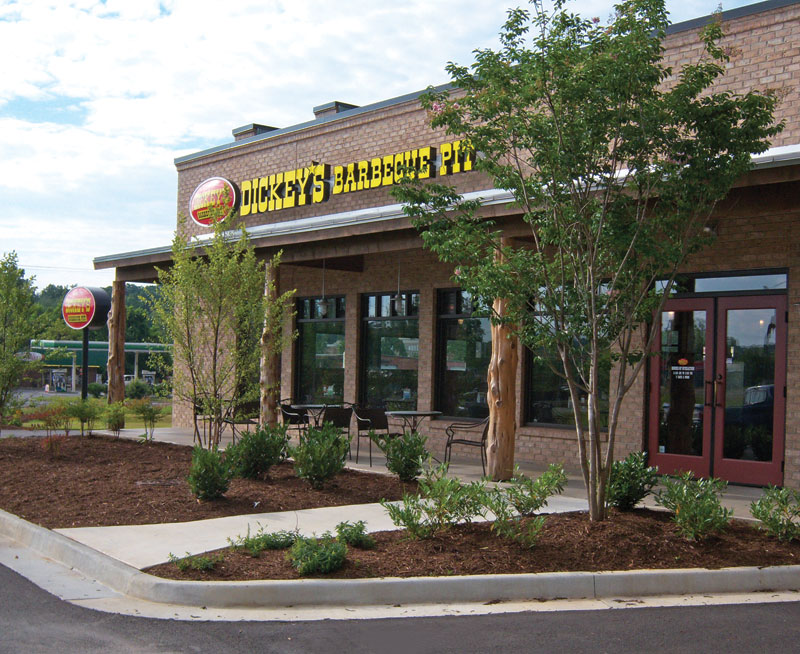Dealing with suppliers and distributors on a daily basis means many restaurant operators are adept at driving a hard bargain. And with the economy still struggling to stay above water, operators may want to consider putting those skills to use by renegotiating their building lease.
As a partner for lease restructuring and real estate advisory firm Huntley, Mullaney, Spargo & Sullivan, Thomas Mullaney has worked with franchisees and corporate offices at brands like Carl’s Jr., Panda Express, Jack in the Box, and Wendy’s. He says today’s quick-serve operators have a good shot at getting lease rates lowered.
“Depending on the part of the country you’re in, markets are beginning to firm, but some are still under real distress,” Mullaney says. “Operators can drive attractive deals.”
While landlords in California and on the East Coast now have room to be a little more demanding, Mullaney says, many others across the U.S. are still on their heels, trying to recover from five years of economic catastrophe. The opportunity is especially strong in places like Las Vegas or Phoenix, where Mullaney says “rampant overbuilding” was the norm.
“Now is a really good time to lock in rents at what I would call something that’s going to be close to a cyclical bottom,” he says.
He says one big reason operators look to renegotiate leases is their stores are suffering financially. Most landlords would rather cooperate than lose the tenant, he says, and it’s key for the operator to demonstrate financial need.
“If you are showing negative cash flow at the store level, a significant percentage of landlords will work with you,” Mullaney says.
Frank Scherer, vice president of the restructuring group for real estate firm Newmark Grubb Knight Frank, says it’s not just struggling stores that are looking for a break. He’s worked with franchisees from Burger King and KFC and says lease renegotiation can happen at any level of financial health.
“We’ve dealt with clients in bankruptcy, we’ve dealt with clients preparing for bankruptcy,” Scherer says. “We also work with nondistressed clients. Regardless of the economic conditions, there’s certainly leverage.”
However, operators who can’t demonstrate financial need must take a different approach. Mullaney says the very first step is to read the lease carefully, as there are often tenant-friendly provisions that can make the difference between success and failure.
“Depending on how clever you are as a negotiator, you may or may not have more leverage than you think,” Mullaney says. “Reading your lease is extremely important.”
But it’s not always necessary to work with a dedicated restructuring firm to get a good deal. Franchisors often have tools in place to help their franchisees negotiate both new and old leases.
Fast-casual barbecue chain Dickey’s Barbecue Pit has been growing quickly, adding 12–15 new franchisees a month to its 255 existing stores. With so many fresh faces getting into the game, and with leases from previous years starting to come up for renewal, senior real estate manager Lauren Parker says some hand-holding is essential.
“We’re starting to get our game plan together,” Parker says. “We’re having to help our current owner-operators with that more and more. We have a duty to our owner-operator to make sure that the deal that they have with their landlord is a good, solid deal.”
The chain has a dedicated real estate team that pulls demographic information and examines what comparable properties have sold for. It will then negotiate a lease that is reasonable for both parties based on market rates.
The primary weapon for renegotiating leases, the experts say, is the “blend and extend,” where, in exchange for a rent reduction or rent freeze, the tenant agrees to extend the lease by a particular amount of time. But there are other effective bargaining chips, as well.
Operators can ask for extra parking spaces, money for improvements, or similar concessions. Even if these perks aren’t essential, they provide room for negotiating, Scherer says.
“[The] primary focus is a rent reduction,” he says. “In order to leverage that negotiation, it would be wise to add some other
things that you’ve asked for that you’d be willing to give up in order to get that rent reduction.”
One powerful throwaway is the exclusivity clause. By asking for contract language guaranteeing, for example, that a quick serve will be the only one allowed to sell breakfast in a given shopping center, it brings a new element into the discussion.
If a lease includes a personal guarantee or co-collateralization with other properties, Scherer suggests asking to have those clauses removed. “The rule of thumb is the more you ask for, the more you’re going
to get,” he says.
A lot, though, depends on state and local laws, Mullaney adds. Operators are smart to check with local real estate lawyers to know what rights they have, as some states, like Nebraska, are more tenant friendly than others, such as New York.
“In Nebraska, there’s a very limited duty to mitigate,” Mullaney says. “You could be much more aggressive in terminating your lease. In New York, if you were to take a similar approach, you would be sued on the spot for nonpayment of rent.”
Though some landlords just won’t budge, Scherer says, many operators will find that a good deal is not out of reach if they use the right approach.
“If a portfolio is worked diligently, 40 percent of landlords will concede,” he says. “I would have to say you can credit the effective use of reason.”













